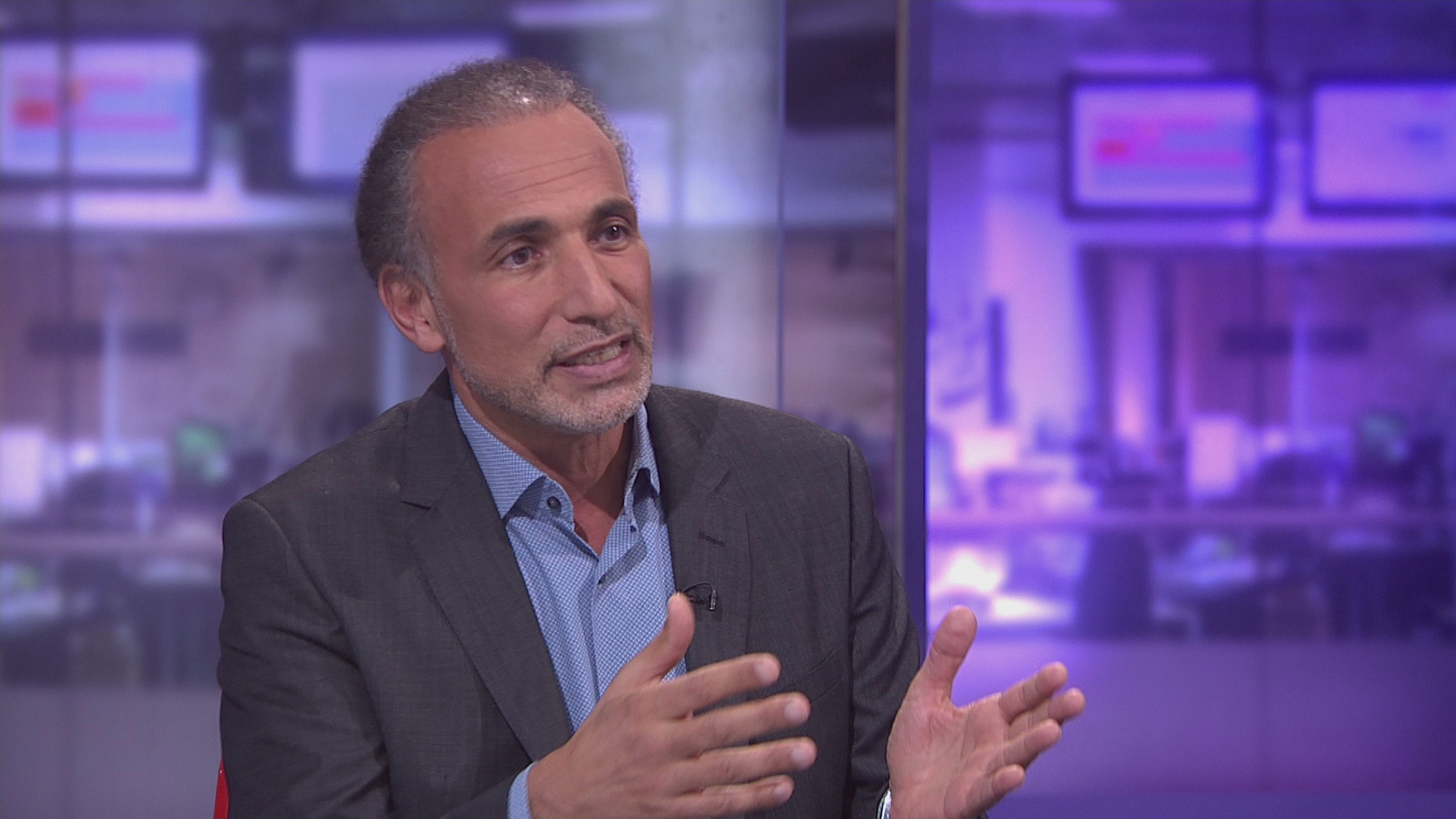The rape allegations against Tariq Ramadan have produced debate in France and in the French media about wider issues to do with the Muslim community. While left-wingers have argued that the backlash against Ramadan’s alleged sexual misconduct has been so great because he is Muslim, others, including senior French politicians (such as Manuel Valls, former Interior Minister and Prime Minister) and publications such as Charlie Hebdo, are arguing those defending him have an Islamist agenda[1]. Shatz notes that the affair in France has become “a debate less about Ramadan and his treatment of women than about French intellectuals, their relations with Ramadan, and their views of Islam in French life”[2].
In the UK, Ramadan is Professor of Contemporary Islamic Studies at the University of Oxford[3] and has worked as an advisor to the government[4]. He is also a critic of the UK government’s approach to counter-extremism on the basis that it “avoid[s] dealing with real issues”, and creates “an atmosphere of suspicion and stigmatisation of Muslims” which only adds to the problem it is trying to solve[5]. However, despite his prominent and influential position within the UK, in contrast to France, there has been relatively little stir about the allegations against him here.
British media outlets have preferred to discuss only the details of the accusations, his subsequent leave of absence from his post at Oxford University, and information on who Ramadan is, with the occasional brief discussion of the controversy surrounding his work[6]. There has been a similar lack of discussion about the implications of the allegations among British Muslim groups, religious leaders, politicians, and intellectuals, although The Telegraph reports that soon after the accusations against Ramadan emerged, Professor Eugene Rogan, a colleague of Ramadan’s and the director of the University of Oxford’s Middle East Centre, suggested in a faculty meeting at the university that, while women should not be victimized, “the allegations amount to “Europeans” attempting to “gang up against a prominent Muslim intellectual””[7], an argument in line with left-wing arguments made in France.
Britain is accused by Eric Albert in the French newspaper, Le Monde, of “turning a blind eye” towards these allegations because of Ramadan’s status as a professor at Oxford whose post is financed by Qatar[8]. His frequent role as an adviser to the government on issues of radicalisation and freedom of belief[9], and contributions to the British newspaper, The Guardian, are also seen as contributing to his perceived protection by the British press[10].
However, Albert also notes that this difference in reaction might be because, despite Ramadan’s frequent appearances in the British media, he is generally less well-known to the public, and the same controversy which follows him in France is not present in Britain[11]. Instead, Albert asserts that there is a misunderstanding of Ramadan and his ideas in Britain. According to Albert, these ideas are summed up in a February, 2017 article in The Guardian, in which journalist Shariatmadari writes that he does not believe Ramadan is “a shadowy puppet-master”, and describes Ramadan’s main message as “to remain faithful to the tenets of Islam, but resolutely to participate in western society”[12].
Despite the apparent lack of controversy surrounding Ramadan in the UK, it is important to note that less than a week after the 7/7 bombings in London in 2005, British newspaper, The Sun, branded Ramadan as an Islamist “whose moderate tones present an acceptable, ‘reasonable’ fact of terror to impressionable young Muslims”[13]. However, this controversy does not appear to be public enough to warrant significant outcry from either side in the UK with regards to the recent allegations.
[1] Bremner, 2017; Shatz, 2017.
[2] Shatz, 2017.
[3] www.tariqramadan.com, no date.
[4] BBC News, 2017.
[5] Ramadan, 2016.
[6] See Adams and Chrisafis, 2017; BBC News, 2017; Bulman, 2017.
[7] Yorke and Lawford, 2017.
[8] Bremner, 2017.
[9] Albert, 2017.
[10] Bremner, 2017.
[11] Albert, 2017.
[12] Shariatmadari, 2017.
[13] Albert, 2017; Shariatmadari, 2017.
Sources
Adams, R. and Chrisafis, A. (2017) ‘Oxford University places Tariq Ramadan on leave amid rape claims’. 7 November. [online] https://www.theguardian.com/world/2017/nov/07/oxford-university-places-tariq-ramadan-on-leave-amid-claims. [Accessed 29 November 2017].
Albert, E. (2017) ‘Au Royaume-Uni, l’affaire Tariq Ramadan ne crée aucun émoi’. 30 October. [online] http://www.lemonde.fr/societe/article/2017/10/30/au-royaume-uni-l-affaire-tariq-ramadan-ne-cree-aucun-emoi_5207955_3224.html. [Accessed 29 November 2017].
BBC News. (2017) ‘Rape claims hit Islam scholar Tariq Ramadan in France’. 30 October. [online] http://www.bbc.co.uk/news/world-europe-41805953. [Accessed 29 November 2017].
Bremner, C. (2017) ‘Rape allegation against scholar Tariq Ramadan fuels Islam row’. 24 November. [online] https://www.thetimes.co.uk/article/rape-allegation-against-scholar-tariq-ramadan-fuels-islam-row-2kbf9kc5q. [Accessed 28 November 2017].
Bulman, M. (2017) ‘Tariq Ramadan: Oxford academic takes leave of absence over sexual assault allegations’. 8 November. [online] http://www.independent.co.uk/news/uk/home-news/tariq-ramadan-resigns-sexual-assault-abuse-allegations-oxford-university-academic-a8042881.html. [Accessed 29 November 2017].
Ramadan, T. (2016) ‘The politics of fear: how Britain’s anti-extremism strategy has failed’. 5 September. [online] https://www.theguardian.com/commentisfree/2016/sep/05/politics-of-fear-britain-anti-extremism-prevent-government-radicalisation. [Accessed 7 December 2017].
Shariatmadari, D. (2017) ‘Tariq Ramadan: ‘Muslims need to reform their minds’’. 28 February. [online] https://www.theguardian.com/world/2017/feb/28/tariq-ramadan-muslims-need-to-reform-their-minds. [Accessed 29 November 2017].
Shatz, A. (2017) ‘How the Tariq Ramadan Scandal Derailed the #BalanceTonPorc Movement in France’. 29 November. [online] https://www.newyorker.com/news/news-desk/how-the-tariq-ramadan-scandal-derailed-the-balancetonporc-movement-in-france. [Accessed 7 December 2017].
Yorke, H. and Lawford, E. (2017) ‘Oxford academic defends Tariq Ramadan amid claims he is being attacked for being a ‘prominent Muslim’. 6 November. [online] http://www.telegraph.co.uk/education/2017/11/06/oxford-academic-defends-tariq-ramadan-amid-claims-attacked-prominent/. [Accessed 7 December 2017].
www.tariqramadan.com. (no date) ‘Biography’. [online] https://tariqramadan.com/english/biography/. [Accessed 7 December 2017].






